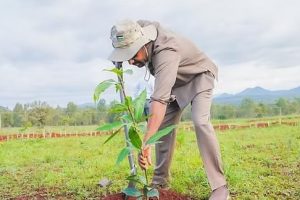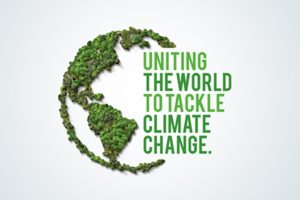BY DARGIE KAHSAY
In a recent workshop on clean air during the celebration of the third worldwide clean air day here in Addis Ababa, experts disclosed that air pollution is a cause of annual death for over seven million world population and over 50 thousand people in Ethiopia. Of the total world’s annual deaths from air pollution, the developing world takes over 92 cents shares.
Though the air polluting factors are multidimensional in their nature, lack of clean energy, polluting factors from the industry sector and emissions from vehicles are among the top causes of air pollution. Lack of access to clean energy forces households to use energy from unclean sources and this can become a cause of both indoor and outdoor air pollution. In addition, if society has no clean energy access, it would be forced to use forests for energy and this directly has an impact on deforestation.
According to the Ethiopian Petroleum and Energy Authority, Ethiopia’s energy source is mostly water (hydro) as the country’s huge energy potential is the hydropower sector. But, if deforestation continues, so is environmental degradation which would affect the water resource of the country. Hence, lack of access to clean energy has an impact not only on air pollution and deaths related to air pollution but also leads to deforestation which affects the continuity of natural resources.
Speaking at the workshop during the international clean air day celebrated with the theme “the air we share”, Ethiopian Petroleum and Energy Authority (PEA) Director General Sahrela Abdulahi stated that “Ethiopia’s energy source is mostly from the hydro sector” adding it is important to use the available energy production wisely by saving energy from waste. For her, since Ethiopia is struggling to build a climate-resilient green economy, clean energy is the backbone of everything. For Sahrela, Ethiopia is investing in widening its energy production from diverse sources, hydro, wind, sun and geothermal and different projects are under construction.
As to the General Director of PEA, Ethiopia’s effort is to meet the energy demand of its population from both grid and off-grid sources and the country is investing in huge mega projects like the Grand Ethiopian Renaissance Dam (GERD) and other projects aiming at increasing the energy production of the country. Ethiopia has a plan of universal energy access to fulfil the energy demand of its population fully. In addition, Sahrela noted that it is important to use the already on-hand energy wisely to minimize energy waste.
“Power is savable, similarly if we use it unwisely it is an easily wasted product”, Sahrela stated adding that using energy by minimizing all wasting factors, can help to reach an additional population to have access to clean energy. For her, this would help to minimize air polluting factors, and control deforestation and additional environmental degrading factors. At the same time, it helps the country’s economy since a huge volume of energy is wasted due to different reasons.
As to Sahrela, access to clean energy is key to tackling climate change especially air pollution, which is why the death from air pollution takes the lion’s share in the developing world. Hence, for her, parallel to investing in expanding energy sources, it is important to use the available energy efficiently. “Ethiopia is producing sic gigabyte (GB) so annually and from this, around 2.5 GB is wasting due to different reasons mainly the materials used in households and wastages in factories,” Sahrela stated adding that “saving this energy would help to expand clean energy for the people who still have not got access.” In addition, this wastage has a huge economic impact on the country.
For Sahrela, parallel to increasing the investments in the energy sector, Ethiopia gives due attention to the efficient use of energy. In this regard, the PEA is working to minimize wastage through different methods, adding by 2030, the authority plans to increase energy efficiency by 14 per cent, ‘which would help to save 34 kw/h,” she noted.
To her, applying the forced standard of materials used in homes and energy auditing at factories are among the methods to control energy wastage and increase energy efficiency. In addition, for Sahrela, every building should be designed and built by applying all possibilities to use minimum energy without compromising comfort. “Climate change is becoming a threat for everyone and everyone should act responsibly during their day-to-day activities to minimize the impacts on the environment,” Sahrila noted.
According to the Director General, the authority is working to realize the country’s goal of building a green economy by increasing energy efficiency and controlling the polluting factors from the oil sector. Concerning the oil, oil centres would build after an environmental impact assessment to control the pollution from the sector.
Ethiopia’s clean energy investment is continued in hydro, wind, geothermal and solar sources. Recently, Ethiopia started energy production from its giant national project, GERD, and this week Ethiopian Electric Power (EEP) announced that the Aysha Wind Farm II project is successfully connected to the national grid, which is the fourth wind project in the country with the production capacity of 40 MW.
THE ETHIOPIAN HERALD WEDNESDAY 21 SEPTEMBER 2022





